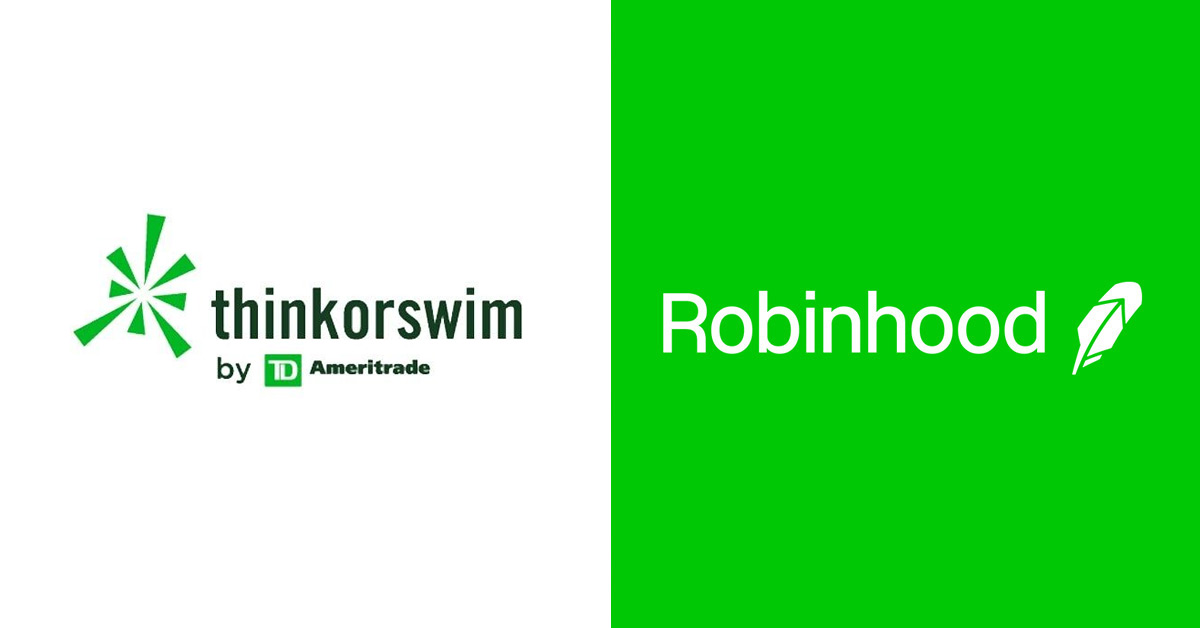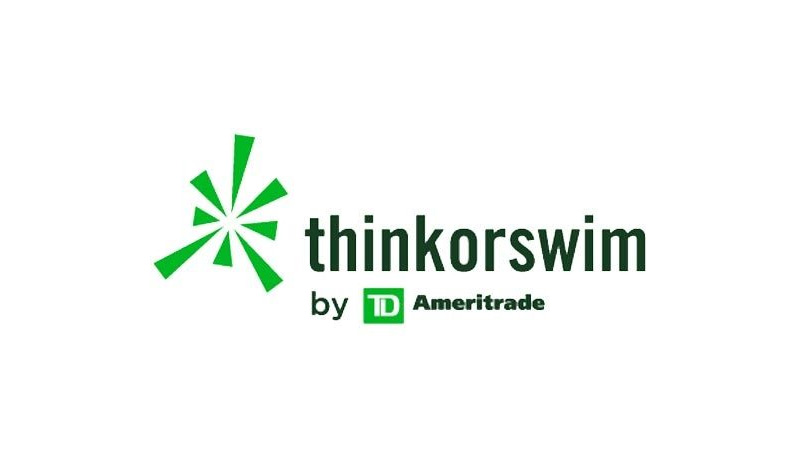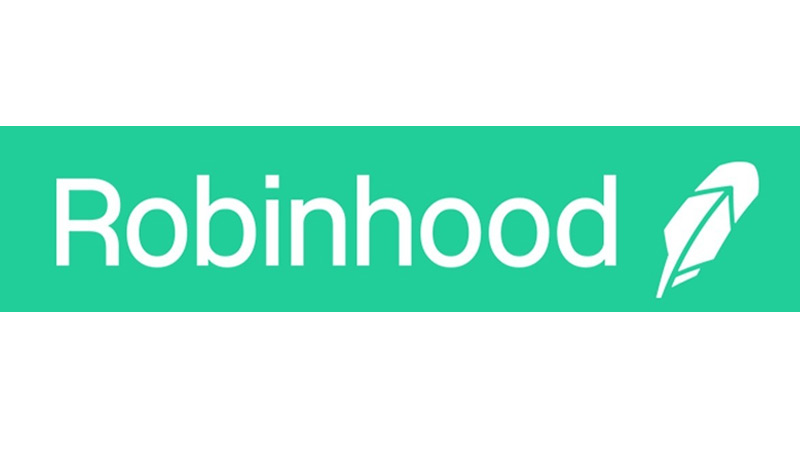Thinkorswim vs Robinhood: Which One Is Better In

Surely, you’ll agree with us that one of the most essential factors that you must consider if you want to make profitable investments is “choosing the right brokerage service” – the one that suits your investing goals, as well as your learning style. However, this isn’t a very easy thing to do, as there are hundreds of brokerage firms out there. Well, in case you’re interested in choosing the right app, we recommend you try any of these two popular brokerage apps; Thinkorswim and Robinhood – and guess what, we’ll be conducting a face-off between them to know which of them is better for your investing goals.
First, it’s worth noting that both apps have their pros and cons. That said, Thinkorswim is better for young investors that are interested in advanced trading tools and research. On the other hand, Robinhood is better if you’re the type that’s interested in investing in fractional shares and zero-commission trading.
No doubt, it can be very difficult to say exactly which of the two brokerage firms is better. In the rest of this article, we’ll be having a Thinkorswim vs Robinhood face-off, to know which one of them is better in 2021. To make it easier for you to decide, we’ll be making use of some essential factors – especially those that matter to investors, such as costs, fees, investment selection, platforms, ease of use, and many more. Without further ado, let’s get straight down to business.
Overview Of Thinkorswim
Thinkorswim, powered by TD Ameritrade, is a trading platform that offers investors a range of tools and analytics for investing online. The global online financial trading platform and multi-asset broker was founded in 2008 by Thinkorswim Group, Inc. However, it was later acquired in 2009 by TD Ameritrade.
The online brokerage platform also provides its users with education products in different interactive delivery formats. These include in-person workshops, personalized coaching programs, instructor-led synchronous and asynchronous online courses, email support, and many more. Furthermore, Thinkorswim is one of the most reliable platforms for private investors who are interested in learning about complex strategies – those that are only utilized, traditionally, by professional traders.
With the Thinkorswim platform, which is available in both mobile and desktop versions, you’ll be able to do a lot of things. These include buying and selling securities such as stocks, ETFs, mutual funds, index products, options, futures, foreign exchange, and fixed-income investments.
Thinkorswim was designed with the help of a coding language, called “thinkScript”. One of its benefits is that it enables young and advanced investors to easily and effectively create their indicators. Furthermore, another unique offering of the Thinkorswim platform is the stock hacker tool. As for this feature, it assists online traders in scanning for stocks that meet their standards, and then updating them with alerts, accordingly.
Overview Of Robinhood
Robinhood Markets, Inc., founded in April 2013, is a FINRA-regulated online brokerage firm that provides services to both individuals and institutions that invest online. Currently, the company hosts over 10 million customer accounts, belonging to traders from across the globe.
Although Robinhood is known for a lot of things, its key feature is the commission-free trading model that it employs. This offering enables young and advanced investors, from around the world, to buy and sell stocks, ETFs, options, and cryptocurrencies, at zero commission. Apart from offering free commission trading, another key feature of Robinhood is its “easy to use” interface. The benefit of that is it enables investors, especially beginners, to quickly find their way on the brokerage firm’s intuitive and streamlined platform.
Over the past few years, Robinhood has improved its trading services, by rolling out a couple of features. One of them is the trading of fractional shares on the platform. This offering, which was introduced in 2019, allows investors to buy pieces or fractions of one full-share of a company.
Another feature introduced by the online brokerage firm is the “Robinhood Gold” – an offering that gives premium investors access to additional features, such as margin lending, professional research, Level II market data, and instant transfer.
That’s not all! The online brokerage firm also offers a feature, called cash management. The unique but optional offering enables investors to earn up to 0.30% APY on their cash. Although Robinhood cash management is not a bank account, it comes with a debit card, issued by the Sutton Bank.
Trading Fees On Thinkorswim

As earlier mentioned, Thinkorswim offers a wide range of investments for its investors to pick from. Some of them include stocks, ETFs, bonds, CDs, options, treasuries, and futures. In case you’re the type that’s looking to create an expanded portfolio on Thinkorswim, which touches across many of the aforementioned instruments, one thing that you need to know is the trading fees on the platform.
That said, in case you’re interested in building your portfolios, using individual stocks or ETFs, Thinkorswim currently charges zero commission on trading these instruments. Speaking of options and mutual funds, the brokerage firm charges commissions of $0.65 per contract and $49.99 per transaction, respectively. Interestingly, Thinkorswim also offers some of its mutual funds at zero commission.
Broker-assisted trades occur mostly when investors don’t have reliable internet access to place a trade. In this case, the traders call their brokerage firm, asking them to place a trade on their behalf. Thinkorswim offers its investors with an option to place trades over the phone, using an automated interactive voice response system (IVR). However, this offering isn’t free of charge.
In case you’re interested in placing a brokerage-assisted trade on stocks and ETFs, Thinkorswim charges a flat fee of $25 per trade for live trade assistance. As for IVR, the firm only charges $5 per trade. Both packages will also include a $0.65 charge per contract.
The table below shows the trading fees on Thinkorswim in 2021
| Thinkorswim products | Amount |
|---|---|
| Stocks and ETF trades | $0 |
| Stocks and ETFs broker-assisted trades | $25 |
| Options | $0.65 per contract |
| Mutual funds | $49.99 per transaction |
| Treasuries | $25 |
| Futures | $2.25 fee per contract |
Trading Fees On Robinhood

As earlier mentioned, one of the key features of Robinhood, which has helped in attracting more investors to the platform is the zero-commission model that it employs. However, since Robinhood is a private firm, it has to make money, somehow.
That said, Robinhood primarily makes its money from rebates from market makers and trading venues. It also makes money from its premium package, called Robinhood Gold, which goes for $5 monthly.
Speaking of trading fees on the Robinhood markets app, the platform doesn’t charge its investors when they trade on stocks, ETFs, and other instruments. However, the company charges some hidden fees, which you need to be aware of.
For instance, in case you’re transferring an account to a competing brokerage firm, using the ACAT system, Robinhood charges a flat rate of $75. For paper statements and paper confirmation, the platform charges $5 and $2 each, respectively. Robinhood charges a flat fee of $25 for domestic wire transfers. As for international wire transfers, the firm charges $50 flat.
Furthermore, in case you’re interested in trading foreign security, you’ll be charged a flat fee of $50. That’s not all, Robinhood charges $15 for cancellation or adjustment of your foreign security trades. As for Euroclear and Canadian securities trades, you’ll be charged a flat fee of $35 each.
Returned wire fee and ACH fee costs $9 each. As for customer regulatory fees, such as SEC, Robinhood charges $2.31 per $100,000 of principal on sales. It also charges 0.0119¢ for Trading Activity Fee (TAF) in stock sales only.
The table below shows the trading fees and other hidden commissions on Robinhood in 2021
| Features | Charges |
|---|---|
| Stocks and ETFs trades | $0 |
| Broker-assisted trades Fee | N/A |
| Futures & Mutual funds trades | N/A |
| Options | $0 |
| Margin loans | 2.5% value |
| IRA annual fee | $0 |
| Account transfer out, (partial or full) | $75 |
| Returned ACH and wire fees | $9, each |
| Domestic wire fee | $25 |
| International wire fee | $50 |
| Paper statement fee | $5 |
| Paper confirmation fee | $2 |
Fees Comparison Between Thinkorswim And Robinhood
When it comes to the list of the most popular and reliable online brokerage firms in 2021, there’s no way you won’t be mentioning Thinkorswim and Robinhood. That’s because both companies have, over the years, proven themselves to be relevant and competitive in the brokers & exchanges industry.
Speaking of how the trading fees of both apps compare, it’s clear that the face-off is favoring Robinhood. That’s so because the platform doesn’t require any trading commission on equity (Stocks and ETFs). That said, let’s have a quick look at the table below to see how trading fees on both platforms compare.
| Features | Thinkorswim(Amount) | Robinhood (Amount) |
|---|---|---|
| Stocks and ETF trades | $0 | $0 |
| Stocks and ETFs broker-assisted trades | $25 | N/A |
| Options | $0.65 per contract | $0 |
| Mutual funds | $49.99 per transaction | N/A |
| Treasuries | $25 | – |
| Futures | $2.25 fee per contract | N/A |
Which One Is Better; Thinkorswim or Robinhood?
So far, we’ve been able to conduct a Thinkorswim vs Robinhood face-off, using factors like costs, fees, and features. Now, let’s have a quick look at the pros and cons of the two brokerage apps, below.
Let’s have a quick look at the Pros and Cons of Thinkorswim, below.
Pros
- Offers some of the Advanced charting, trading tools, and analytics
- Offers educational resources
- Extensive range of securities, including stocks, options, futures, forex, mutual funds, ETFs, and fixed income
Cons
- New traders may find it a bit challenging to navigate easily on Thinkorswim
- High commissions
- Too many options on the platform, making it a bit overwhelming
Let’s have a quick look at the Pros and Cons of Robinhood, below.
Pros
- Easy to use interface
- Highly accessible for everyone
- High yield savings via its cash management feature
- No-fee ACH transfers
- Free stock, option, ETF, and cryptocurrency trades
- Fractional shares and margin trading
Cons
- Lacks adequate investing research and trading tools
- It offers limited investment choices
With all that has been said so far, you should be able to now decide which of the two brokerage apps, Robinhood and Thinkorswim, is right for your investing goals. Left to us, we believe both brokerage platforms have their specific audience.
Robinhood is better in terms of its zero-commission trading and ability to invest in fractional shares. On the other hand, Thinkorswim is better, as it offers advanced charting, trading tools, and analytics, which enables you to make better decisions regarding how you trade. That said, you can go ahead and choose your preferred app.






